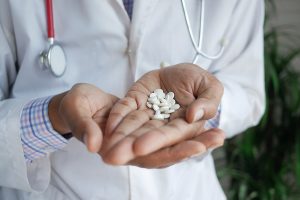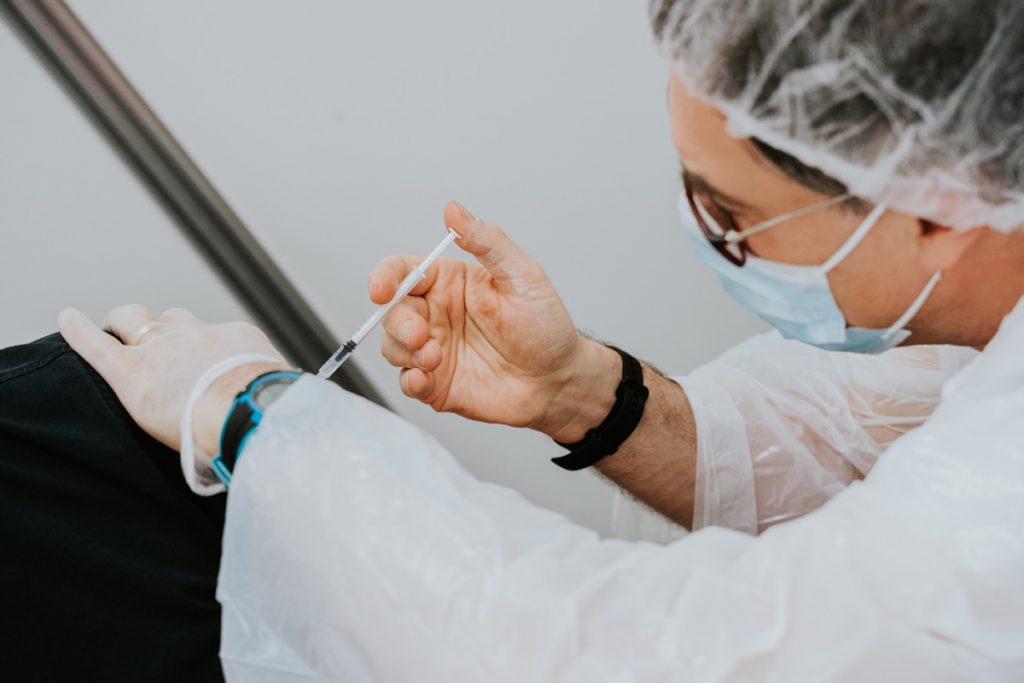Omicron continues its march across the nation, promising another winter of high transmission of COVID-19. But further ahead in 2022, more robust treatments for the virus are rekindling hopes that the world may have better tools to fight the pandemic soon.
The Food and Drug Administration has granted an emergency use authorization, or EUA, to the first broadly effective anti-COVID-19 pill, a step toward reactive therapeutic treatment for the virus that many experts are hailing as a possible turning point in the pandemic. And the Walter Reed Army Institute of Research recently announced preclinical results of a highly anticipated advancement in COVID-19 vaccination: a pan-coronavirus vaccine intended to end the marathon against new variants of coronavirus.
But while the developments in treatment and vaccination are positive signs for the future, the reality today is that omicron is the most infectious variant of COVID-19 detected thus far, and is driving incredibly high transmission in affected areas. Mississippi State Department of Health data is showing a sustained increase in transmission of the virus, with numbers creeping closer to the four-digit mark over the previous week.

While sustained evidence points to a milder course of disease on average compared to the delta variant, “milder” should be understood to be an aggregate claim. A less lethal, more infectious virus can still replicate the surge in hospitalizations, can still kill thousands, and another winter of mass transmission will have a serious cost in human lives, as evident from the rocketing transmission rates in places like New York.
Ahead of the holidays, and with much of the South having a brief interlude of low transmission before the oncoming omicron surge, public-health experts are encouraging Mississippians to plan ahead to protect themselves and their families.
Family gatherings for the holiday are safer outdoors, or with precautions taken to keep rooms spaced out and most importantly well-ventilated. Indoor masking with effective N95 or KN95 masks is useful for limiting exposure. And heavy use of testing is the best way to identify potential clusters before transmission occurs.
When transmission is high, testing will be difficult to find, with long waiting times at testing sites and medical clinics. Across the state, supplies of home-rapid tests are available at pharmacies right now. Having rapid tests available to test symptomatic friends or family could be the difference between an early detection and a massive cluster of infection.
A COVID-19 Pill That Works
Paxlovid, a Pfizer-developed protease inhibitor, functions similar to antiretroviral medications used to treat HIV. The pill binds to critical reproductive enzymes in the structure of the virus, countering its ability to replicate in the body. Clinical trials have been overwhelmingly positive for Paxlovid. Data from Phase II/III trials showed an 89% reduction in hospitalizations among individuals already at heightened risk of hospitalization from COVID-19.
As Paxlovid targets protease, and does not depend on the same immune system functions as the vaccine, experts are confident that the pill will work against omicron as well as other undiscovered variants of concern. Paxlovid’s EUA applies to all individuals who are 12 or older, who weigh 88 pounds or more, and who are “who are at high-risk for progression to severe COVID-19, including hospitalization or death.”
This criteria is likely to be applicable to a broad range of adults with common health conditions, such as hypertension, diabetes, obesity and other risk factors for serious cases of COVID-19.
The pill provides an opportunity for newly infected patients to arrest the growth of COVID-19 in their system. If adequate supplies of the pill are available for prescription across the nation, future surges of the virus may result in less intensive waves of hospitalization.

However, adequate supplies are far from guaranteed. Dr. Eric Topol, founding director of the Scripps Research Translation Institute, warned in The Guardian that “there is a grossly insufficient supply of only 200,000 treatment courses now, and only 80 million expected by the end of next year.” Globally, more than 277 million cases of COVID-19 have been reported, with many more almost certainly going unreported.
Medical experts are highly optimistic about the prospects of Paxlovid, especially when compared with other post-infection treatments of the virus. Monoclonal antibodies are limited in supply and require medical intervention. Additionally, the shifting surface of the COVID-19 spike protein has rendered some monoclonal treatments ineffective against the omicron variant.
Merck’s own attempt at an anti-COVID pill has proven much more disappointing, with weak clinical trial data leading to many observers discounting it as an ideal treatment in favor of the apparently more powerful Paxlovid. France has canceled an order for 50,000 doses of Merck’s anti-COVID pill, and now awaits an opportunity to claim some of the incoming Pfizer supply.
The Pan-Coronavirus Vaccine
In addition to the positive news on COVID pills, Walter Reed’s “Spike Ferritin Nanoparticle” vaccine may provide the edge against the mutations of the coronavirus that have challenged lasting antibody immunity from vaccination. The new vaccine includes an arrangement of numerous instances of the many spike proteins that give coronavirus its crowned shape and dangerous infectivity.
This collection of spike proteins is intended to be broad enough to provide protection against present and future variants of the virus, providing long-lasting immunity that experts hope will not degrade in the face of new variants like omicron.
While the current vaccines provide serious and lasting effectiveness against severe disease, a vaccine that maintains robust protection against even mild symptomatic infections and transmission could help reduce the continually roiling pandemic surges.
The pan-coronavirus vaccine is still in early trials. In a previous interview with the Mississippi Free Press, Dr. Topol was hopeful that next year could see availability of the shot. “If we put our foot on the accelerator and give it number-one priority, I do believe we could get it by 2022 sometime,” Topol said. “Then we wouldn’t have to worry about each Greek letter variant. Since it is so multi-potent, it would be expected to have efficacy across all variants.”
Yesterday, in a statement to the MFP, Topol explained that his hope has become confidence. The fight against COVID, Topol wrote, now has “a greatly expanded tool chest with the pill. I’m extremely optimistic and I do believe we’ll see an effective pan-coronavirus vaccine in 2022.”
In 2022, perhaps. But in 2021, prevention is a matter of foresight and caution.










